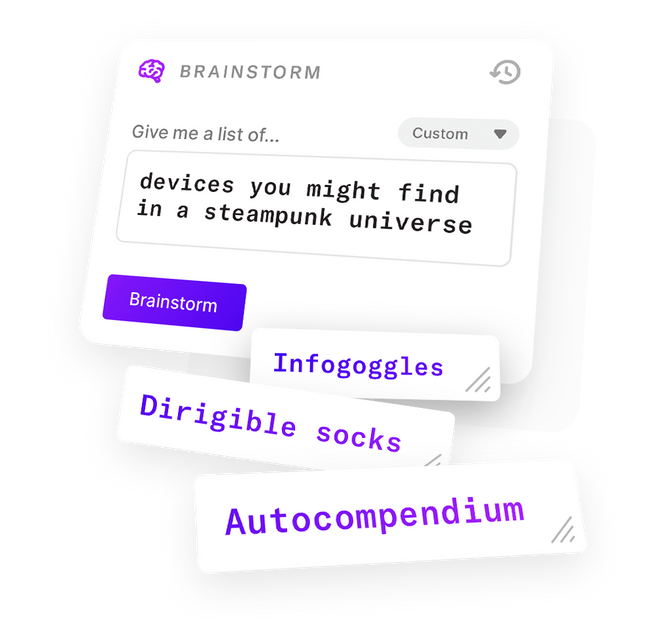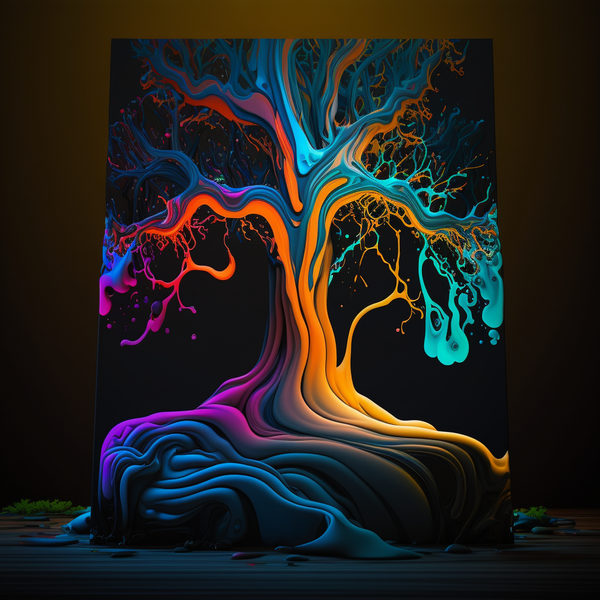
Every writer has, at some point, experienced writer's block. The frustration of not being able to form logical sentences or come up with an engaging storyline is something almost every author has gone through. But, in this technological age, we have tools at our disposal that can aid and sometimes completely replace our innate creative power. Artificial Intelligence (AI) has been making waves in the writing industry, helping authors accomplish their projects efficiently while still keeping their unique voice and style. Keep reading to discover how AI can help writers overcome creative block, from book authorship to newsletter writing.
Meet Sarah, a passionate writer, and a well-known author. You might think that as an acclaimed writer, she would never have to deal with writer's block. However, Sarah is currently struggling with a new book's concept and has been for weeks. Sarah feels like she is at a dead end and is starting to get anxious about it. One day, as she was browsing the internet, Sarah stumbled upon ProWritingAid, an AI writing tool that helps with grammar, style, and language suggestions. Sarah was skeptical at first, but she decided to give it a try. To her amazement, within minutes, she was able to untie that knot that was holding her back.
Not only did the AI tool help Sarah unblock her creative process, but it also enhanced her writing's readability and flow. AI-assisted writing can make writers feel more confident by fine-tuning their writing style and suggesting edits. It doesn't take away from the writer's voice or style, but it aids them in making their writing shine.
Successful AI-assisted writing projects are not hard to come by. Just think of Grammarly, an AI tool that is now a well-known go-to for writers worldwide. The AI tool suggests grammar and syntax recommendations to modify the text without taking out the penmanship's voice. Further, GPT-3 (Generative Pre-trained Transformer 3) is an impressive AI language tool that can mimic human writing and dialogue in various forms. It makes drafting a newsletter or writing a social media post faster, more efficient, and more accurate.
The AI tool's potential has somewhat become a double-edged sword in the world of writing, as some worry that it will take away the nuances and individuality that's inherent in writing. This is, however, far from the truth, as AI is still a tool used by writers who want to improve their writing's impact and quality.
Conclusion:
The world of AI technology is constantly evolving, and writers of all levels can use its features to enhance their writing. Whether it's as simple as using Grammarly or as complex as developing new characters with GPT-3, AI technology can help bust writing blocks and lead to new creative horizons. In embracing AI, writers have the chance to take their writing to the next level and create meaningful and fascinating stories without losing their unique voice and style.
Story 2 Unlocking Creativity with AI:
A Short Story
Writer’s block can be a frustrating experience for any writer seeking to capture their thoughts on paper. The constant struggle to find the right words, phrases, and tone to bring a concept to life can be demotivating. However, technology has transformed the creative industry, and AI has emerged as a tool to aid writers in overcoming their creative struggle. In this blog post, we present a short story that demonstrates the power of AI in unlocking creativity and unveils the benefits of using AI in content creation projects.
Jack was a struggling writer who had been battling writer's block for years. His creativity had hit an all-time low, and he found himself staring at a blank cursor for hours on end. At some point, he began wondering if he was even cut out for the writing industry. Determined to seek a solution, he stumbled upon an AI-powered writing assistant called “Aidan.” Aidan was a revolutionary tool that assisted writers in generating natural and engaging content that fit their unique writing style. Intrigued, Jack decided to give it a go.
He downloaded the software on his computer and started typing the first chapter of his novel. As soon as he hit the enter button, Aidan sprang to life, analyzing his writing style, tone, and word choices. Before he knew it, his characters began to develop and his story flowed seamlessly. Aidan was a game-changer – it allowed him to focus on the story rather than worry about the mechanics of writing.
The more Jack used the AI writing assistant, the more he felt his creativity returning. Before long, he had written a full book, and to his surprise, the story was so captivating that it received immediate attention from publishers. The book became an instant best-seller and marked a dramatic shift in Jack's career. The power of Aidan had enabled him to break through his writer's block and unleash his creativity in ways he’d never thought possible.
Jack was not the only one to benefit from AI-powered writing assistants. Several authors, newsletters, and blogs have used AI technology to produce quality content. CNN even used an AI-powered tool to write breaking news stories, with incredible accuracy and speed, allowing their reporters to focus on more in-depth reporting.
Conclusion:
AI technology is revolutionizing the creative industry, and its potential is limitless. As shown in the story of Jack, AI-powered writing assistants can help writers unlock their creativity and overcome writer's block. This technology allows writers to focus on the creative process rather than get bogged down by the mechanics of writing. While some may fear that AI will detract from the author's voice and style, the examples of successful AI-assisted writing projects demonstrate that this technology can complement an author's craft, rather than replace it. As AI continues to evolve, it will be exciting to see how it will transform content creation projects in the future.
Related Articles About AI Software














